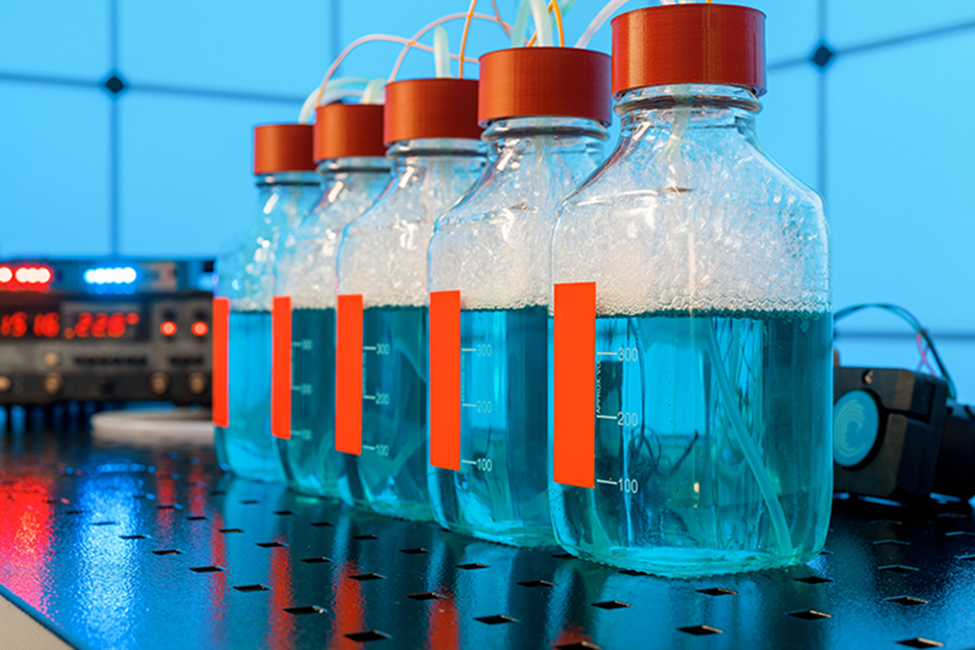Fermentation Chemicals Industry: An Overview of Precision Fermentation process, Chemicals and Top Brands

10 Aug
2023
Fermentation is a traditional process used across various domains in the manufacturing of novel components. From ethanol production to drug discovery, fermentation plays a vital role in the manufacturing processes of products across various sectors. The latest innovations like alternative proteins, lab-grown meat, and many more have highlighted the importance of this technology in the production process. These reactions usually involve the breakdown of sugars into simpler molecules, resulting in the production of various chemicals depending on the type of microbe and the precise fermentation circumstances.
As per the latest study by Allied Market Research, the fermentation chemicals market would cite notable growth throughout the forecast timeframe. Generally, fermentation chemicals are used as a catalyst in the fermentation process. The other benefits of the products are they reduce the cost and time required for the fermentation process. The fermentation chemicals industry is driven by factors such as an increasing demand for alcoholic beverages and a surge in demand for fermentation chemicals from various sectors. Fermentation chemicals involve a wide range of components such as enzymes, vitamins, lactic acid, ethanol, acetic acid, citric acid, amino acid, and many more.
What is Precision Fermentation?
Precision fermentation is an ecologically friendly food technology which is used in the manufacturing of high-value chemicals without the requirement of traditional agriculture or animal farming. This decreases the environmental impact of both food and biopharmaceutical manufacturing since it requires minimal land, water, and other assets. One of the major advantages of precision fermentation is the capacity to generate high-value chemicals with precision and consistency, this can lead to financial savings and enhanced product quality.
Precision Fermentation Chemicals: Microorganisms can be genetically modified to create proteins that are used to replace traditional animal-based proteins, such as plant-based meat alternatives. Precision fermentation is utilized for the production of enzymes that are employed in a variety of industries such as food processing, textiles, detergents, and biofuel generation. On the other hand, Precision fermentation can produce a variety of specialty chemicals utilized in industries such as agriculture, textile, and electronics.
Furthermore, precision fermentation has the potential to decrease the environmental effect of food and biopharmaceutical manufacturing by requiring fewer resources and producing environmentally friendly alternatives to conventional products. Precision fermentation can also utilize to create innovative therapeutics that are very selective and potent, such as gene therapies, vaccines, and biologics. Researchers can adapt compound synthesis to specific criteria, such as nutritional content or usefulness, by altering the genetic makeup of the microbes.
Top Brands in Precision Fermentation Sector:
- ReMilk: What distinguishes ReMilk from the saturated milk substitute industry is its emphasis on making a product which will compositionally and aesthetically identical to conventional cow's milk. This strategy enables ReMilk to reach a broader audience, including customers who hesitate to transition to a dairy-free substitute. ReMilk's collaborations with top food and beverage brands, such as General Mills and CBC Group, accelerate the brand's growth and demonstrate the market need and potential for its products.
- Perfect Day: Perfect Day, another Precision Fermentation Alliance member, got regulatory approval for their whey protein in 2019. After that, Perfect Day launched its first product: ice cream. Perfect Day has distinguished itself from its competitors in the precision fermentation area by focusing on solid connections with consumer brands, food service organizations, and enterprise biology companies.
- The EVERY Company: This brand's egg proteins are used in a variety of applications, such as baked items, mayonnaise, and other dishes that typically employ chicken eggs as a component. Furthermore, increasing egg prices and limited egg supply due to the avian influenza virus have inspired producers to replace regular eggs with precise fermentation-derived components generated by EVERY.

Rosy Behera
Author's Bio- Rosy Behera holds a bachelor’s degree in Electrical and Electronics Engineering and now she is a content writer by profession. She loves to portray her thoughts and ideas with a nice command of words. Grabbing an audience with her creative write-ups is one of her biggest assets so far. Apart from writing, she is a certified “Odisi” dancer and has done Gardharva in Drawing, Painting, and Arts. She always explores new things through travel and is a big foodie.
Avenue: Entire Library membership of Allied Market Research Reports at your disposal
- Avenue is an innovative subscription-based online report database.
- Avail an online access to the entire library of syndicated reports on more than 2,000 niche industries and company profiles on more than 12,000 firms across 11 domains.
- A cost-effective model tailored for entrepreneurs, investors, and students & researchers at universities.
- Request customizations, suggest new reports, and avail analyst support as per your requirements.
- Get an access to the library of reports at any time from any device and anywhere.
Related Post
-
How are Submarine Cables Transforming Global Connectivity with Enhanced User Experience?
-
Endoscopy Procedures: Transformations in Techniques and Applications
-
AI-Powered Video Analytics: How the Product Actually Works for enterprises
-
Painting Robots: Transforming Precision Coating and Creative Applications
-
Innovations in Pharmacovigilance Systems Advancing Patient Safety
-
Understanding Edge Security: Keeping Data Safe Near the Source
-
Exploring the Use and Advancements of 3D Laser Scanners in Professional Applications
-
Reinforcing Industrial Controls with Smarter Tools and Training








